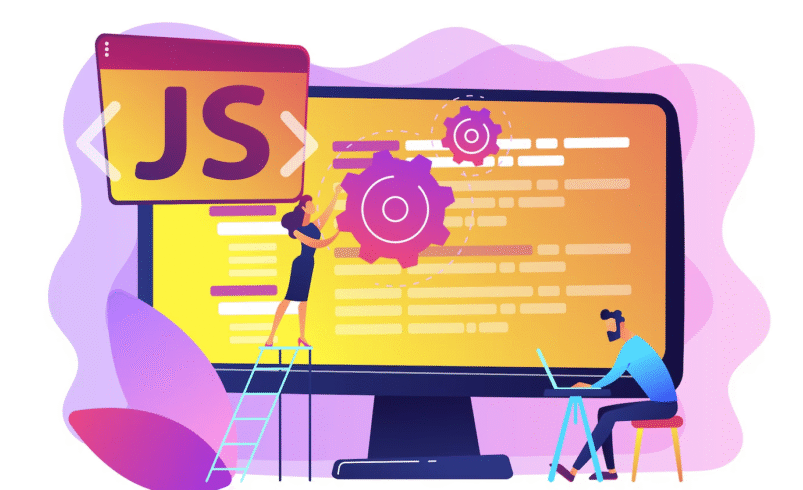Must-Have JavaScript Skills for a Successful Career

The foundation of contemporary web development, JavaScript powers everything from mobile apps to sophisticated single-page applications (SPAs) and dynamic websites. The need to learn more than just the fundamentals of JavaScript is increasing along with the demand for tech-savvy developers. Whether you want to work in front-end, full-stack, or even backend development using Node.js, having a firm grasp of the fundamentals of JavaScript can help you stand out in a crowded job market. The essential JavaScript features you need to develop a lucrative and long-lasting programming career will be covered in this article.
Understanding the Fundamentals of JavaScript
Every aspiring JavaScript developer needs to grasp the fundamentals of the language before delving into libraries and frameworks. These consist of variables, data types, functions, scope, closures, control structures (such as loops and conditionals), and the complexities of the event loop. It’s also crucial to comprehend how JavaScript manages asynchronous operations using callbacks, promises, and async/await. Additionally, understanding ideas like hoisting and prototypal inheritance is not merely theoretical; it is also useful information that influences the behavior of your code. Being proficient in these areas guarantees that developers can write cleaner code, debug efficiently, and comprehend the inner workings of frameworks.
Practical Understanding of ES6+ Features
As JavaScript has developed, ECMAScript 6 (ES6) and later updates have introduced strong new syntax and features. These characteristics enhance code performance and maintainability in addition to making the language more expressive. Arrow functions, template literals, spread/rest operators, destructuring assignments, default parameters, classes, modules, and enhanced object literals are some of the key features of ES6+. Writing contemporary, clear, and effective JavaScript requires an understanding of these additions. Furthermore, being knowledgeable about more recent features like BigInt, nullish coalescing, and optional chaining shows that you are dedicated to staying current with industry standards and writing future-proof code.
A Thorough Comprehension of Event Handling and the DOM
The interface that links JavaScript to HTML and CSS is called the Document Object Model (DOM). For any web developer, knowing how to work with the DOM is essential. This entails dynamically selecting elements, modifying their styles or properties, adding new elements, and deleting existing ones. Another essential component of efficient JavaScript jobs is event handling, which deals with reacting to user input such as keyboard strokes, clicks, and form submissions. Writing code that reacts fluidly and effectively to user actions and contributes to slick and user-friendly interfaces is a sign of mastery in this field. Additionally, skilled developers understand how to handle memory leaks brought on by poorly managed event listeners and employ event delegation.
Tool and Framework Proficiency
Understanding JavaScript by itself is insufficient in the current development environment. It is expected of developers to use package managers like npm or Yarn, as well as build tools like Webpack and Babel. Furthermore, employment frequently requires knowledge of at least one contemporary JavaScript framework or library, such as React, Angular, or Vue.js. These tools facilitate the efficient creation of sophisticated, scalable applications by developers. For instance, React introduces ideas that call for a specific skill set, such as JSX, component-based architecture, and hooks. Your skills and employment prospects are further enhanced by knowing how to use tools like Redux or Zustand to manage application state and React Router or Vue Router for routing.
Performance Optimization, Debugging, and Testing
Functionality and code quality are equally crucial. To make sure their code functions as intended, a proficient JavaScript developer needs to know how to create tests. This covers test-driven development (TDD) approaches, end-to-end testing using Cypress or Playwright, and unit testing using tools like Jest or Mocha. Another essential ability is debugging, which entails efficiently utilizing browser developer tools to track down errors, examine components, and keep an eye on network requests. Furthermore, maximizing JavaScript performance guarantees that applications are quick and scalable by reducing DOM manipulation, preventing memory leaks, and utilizing lazy loading strategies. These procedures demonstrate a sophisticated approach to software development and have a major positive impact on user satisfaction and the longevity of applications.
These JavaScript abilities are necessary for a prosperous and long-lasting career in technology, regardless of whether you’re designing backend logic or creating interactive user experiences. In addition to maintaining your skills, constant learning, experimentation, and adaptation will help you stay competitive in a field that is always evolving.



